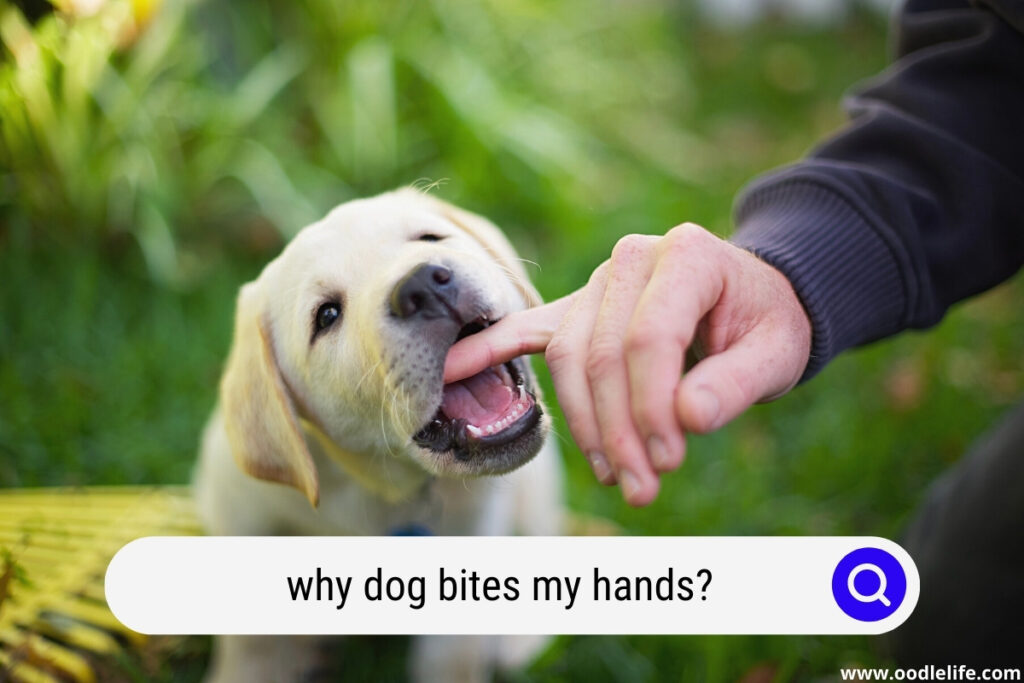Why Does My Dog Nibble Me? [Explained]
Many dog owners might find themselves wondering, “Why does my dog nibble on me?” It’s a common behavior, especially in puppies, that can leave us puzzled, amused, and maybe even a little concerned. Well, worry not!
This article aims to explore and understand the various reasons behind this intriguing dog behavior.
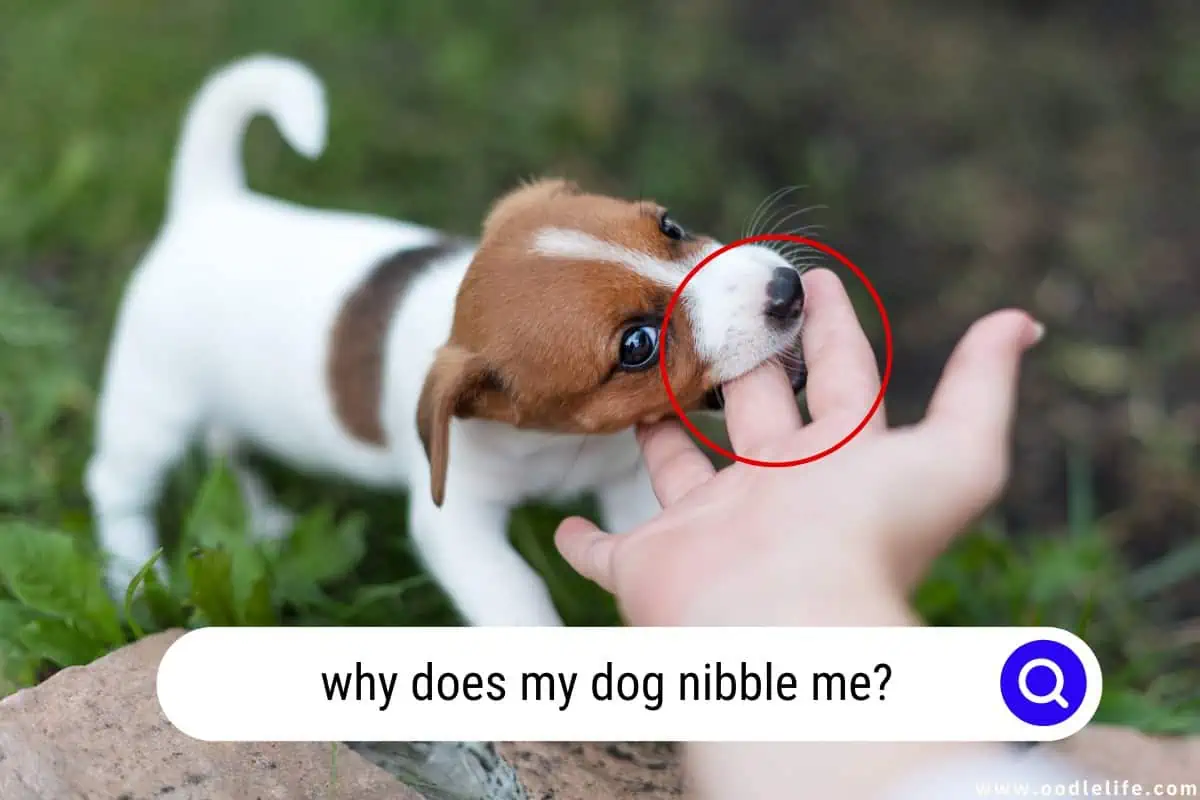
Firstly, nibbling is typically not a sign of aggression. In fact, it’s often a way for dogs to express their affection or desire to play. Additionally, puppies may nibble as a result of teething, as having something to chew on can help alleviate the discomfort of growing new teeth.
Another reason for nibbling is stress or anxiety; dogs may resort to nibbling on you as a coping mechanism when they’re feeling upset or unsettled.
In short, your dog’s nibbling behavior can stem from a variety of causes. Understanding them can help us better cater to our canine companions’ needs and ensure a strong bond between pet and owner. Just remember, while it might be cute and endearing, it’s essential to discourage nibbling in order to prevent any unwanted biting habits from forming in the future.
Why Dogs Nibble?
Affection
Nibbling can sometimes be a dog’s way of showing affection towards their human companions. They may gently use their teeth to grasp fingers or clothes, which can feel like a form of cuddle from their canine friend. In some way, this behavior might be their way of saying they love you, just like we would give a hug or a kiss.
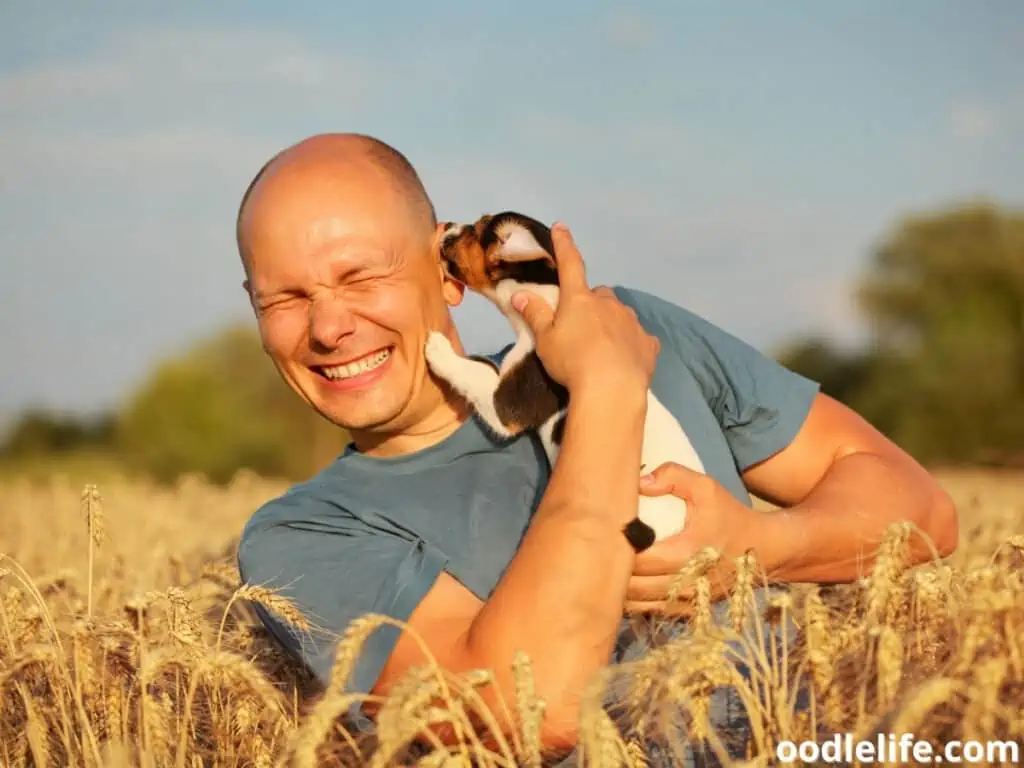
Exploring
Puppies are particularly fond of nibbling as they explore everything around them. This behavior is the canine version of touching and feeling their world. Think of it as a person touching objects to learn about the texture and shape.
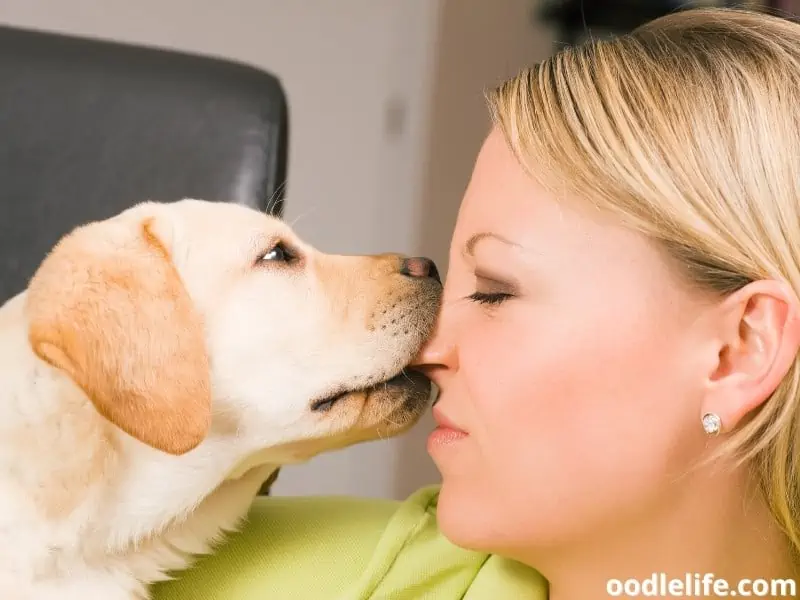
Next time you see a pup nibbling on your fingers, remember you are like a walking, talking mystery toy to them.
Grooming Behavior
Some dogs may nibble or ‘cob’ due to a grooming habit. This behavior often stems from their time as puppies when their mother would lick and nibble on them for grooming purposes. Dogs might try to provide this grooming behavior to their humans, though it may not be as beneficial or necessary as it was to their canine siblings, it is just another way of saying “Hey, I care.”
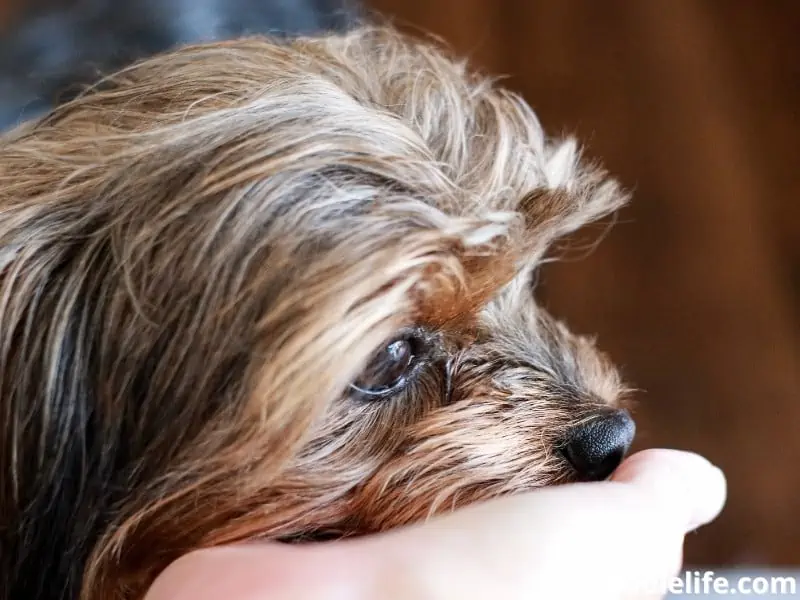
Playful Behavior
When dogs nibble, it could also be their way of inviting you to play. In a canine’s mind, gently nibbling on your hand is their way of saying, “Tag, you’re it!” It’s essential, though, to teach your dog the difference between appropriate and inappropriate play to ensure that their nibbling doesn’t escalate into a painful chomp.
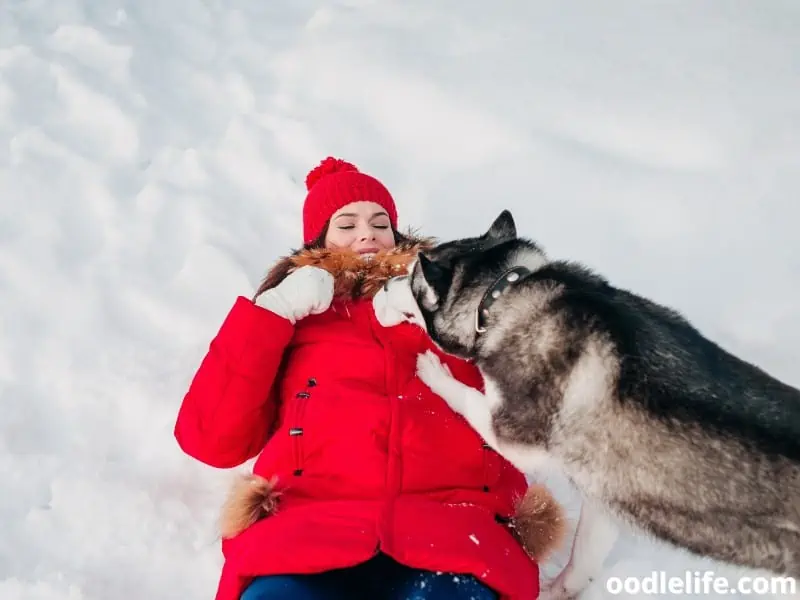
Instinctive Behavior
Lastly, some dogs simply nibble due to instinctive behavior inherited from their ancestors. Dogs are descendants of wolves, and among their wild cousins, using their teeth to communicate, play, and establish social bonds is quite common. So, the next time your doggo playfully nibbles, remember, they are just being true to their roots!
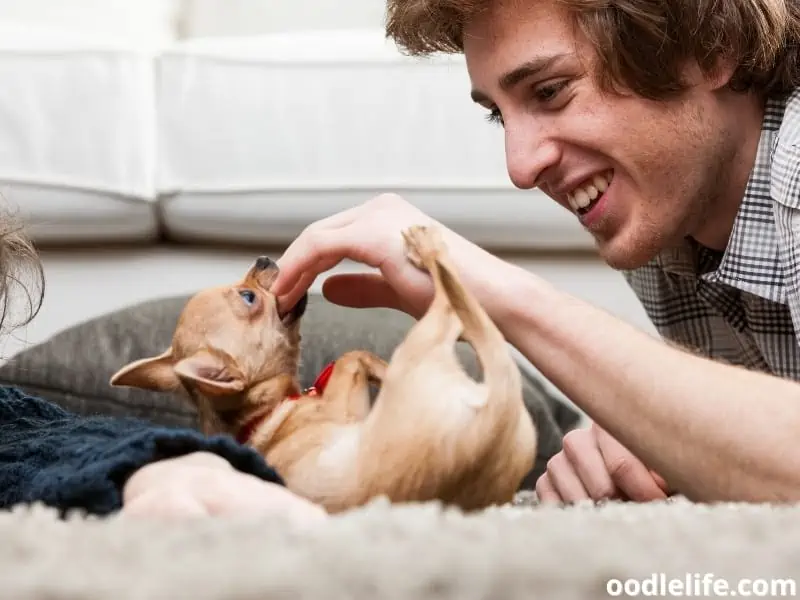
In conclusion, dogs may nibble for various reasons, such as affection, exploration, grooming, play, and instinct. It is essential to learn your dog’s body language and understand the reason behind their nibbling behavior. With knowledge and patience, you can better connect with your precious pooch and have fun together through the quirks of their canine world.
Puppy Nibbling
Teething Phase
During the teething phase, puppies are most likely to nibble on things they come across, including you. Their new teeth are growing in, and this process can cause discomfort. To alleviate this discomfort, puppies resort to mouthing or nibbling on various objects, including people’s hands and limbs.
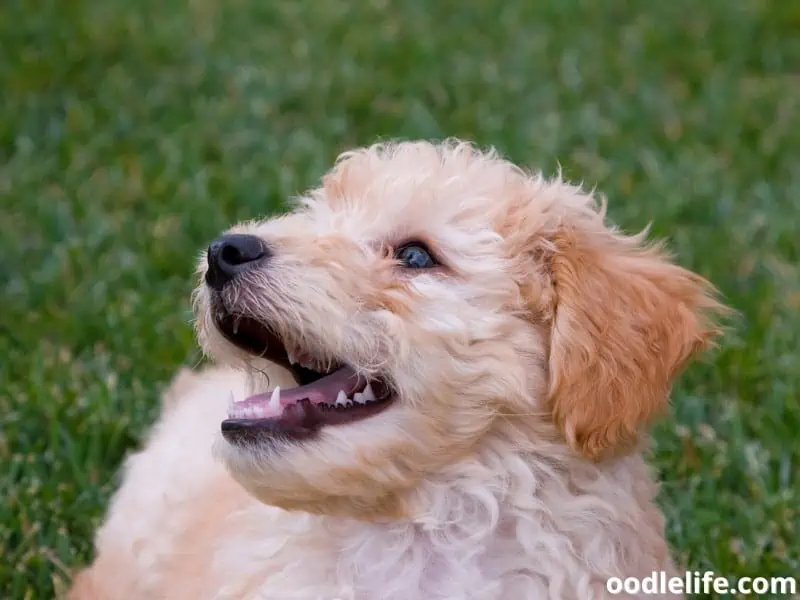
For example, imagine the feeling you had when you were a child losing baby teeth and the sensation of your adult teeth coming in – puppies go through a similar stage. This phase usually lasts from when they are about three to seven months old.
Training Bite Inhibition
Puppy nibbling is also a response to training bite inhibition. When puppies are with their littermates, they engage in playtime that often involves mouthing and biting each other. Through this playful interaction, puppies learn how hard they can bite without hurting one another.
This process is called bite inhibition, and it’s a crucial life lesson for young dogs.
During playtime, if one puppy bites too hard, the other will yelp loudly and stop the game. This interaction helps the puppies understand the limits of their bites. As a dog owner, you can replicate this training process by responding similarly when your pup nibbles on you.
Socialization
Socialization also plays a crucial role in puppy nibbling behavior. When your puppy nibbles on you, they’re trying to bond and engage in social interaction. It’s part of their natural learning process as they explore their environment and develop relationships with other living beings.
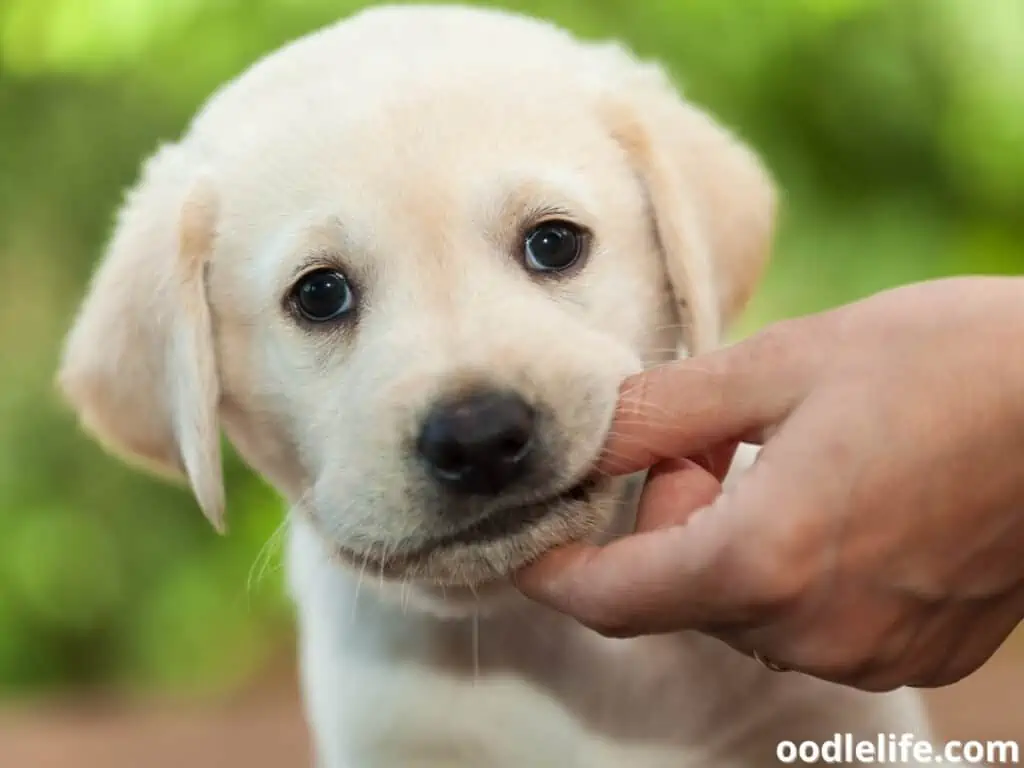
It’s essential to provide proper exercise for your puppy during this stage to ensure they are spending their energy constructively. A combination of mental and physical stimulation can help reduce the frequency of nibbling incidents while promoting healthy socialization habits.
Remember, puppies are just like young children – curious, inquisitive, and eager to learn. The teething phase, bite inhibition training, and socialization are crucial aspects of puppy nibbling behavior. So, when your little furball starts nibbling on you, don’t worry; it’s all part of their journey towards growing up into a well-behaved adult dog.
Signs of Aggression or Anxiety
Aggressive Behavior
When a dog nibbles on you, it’s essential to recognize whether the behavior is aggressive or playful. Signs of aggression include a low growl, stiff body posture, flat ears, raised hackles, and a tucked tail. These cues indicate that the dog might be feeling stressed or fearful, and you should address their behavior immediately.
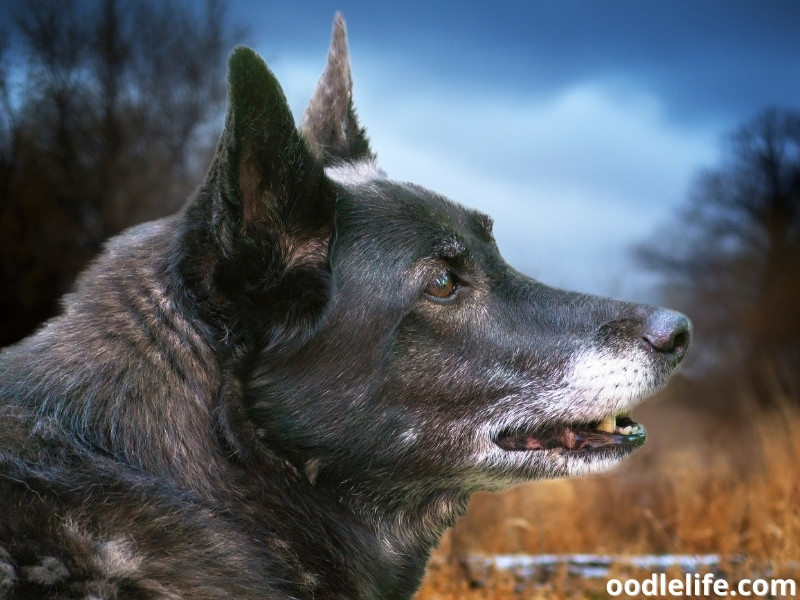
A quick and painful biting sensation is another hint that your dog’s nibbling could be aggressive.
Fear and Anxiety
Dog anxiety can be caused by fear, separation, or aging. Fear-related anxiety might be due to loud noises, strange people or animals, and visual stimuli (like hats or umbrellas). When your dog is anxious, their nibbling could be a way to cope with their fear.
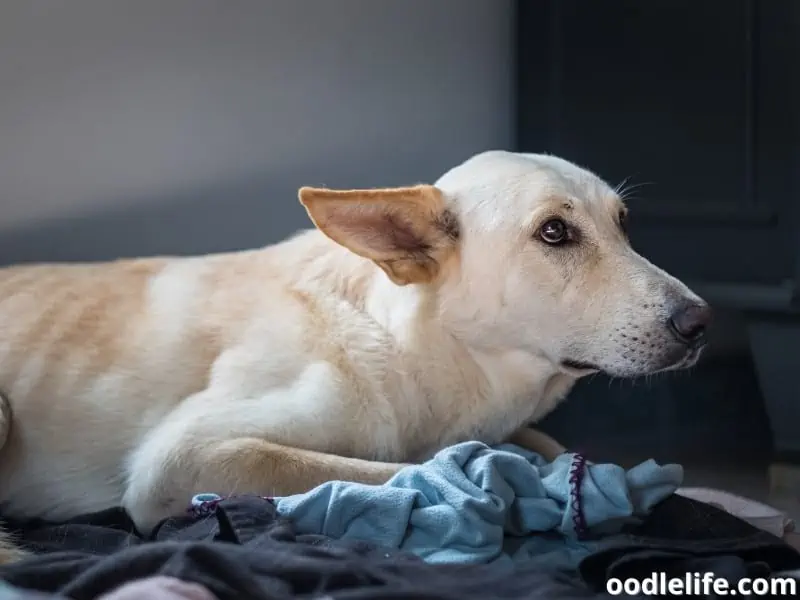
If you notice such signs, it could be time to consult a veterinarian or a behaviorist to determine the root cause and provide appropriate treatment.
Separation Anxiety
Separation anxiety is another common reason some dogs might nibble on you. Dogs that experience this type of anxiety can become stressed and upset when their owners leave them alone. Nibbling on your hand may be your canine companion’s way of seeking comfort and reassurance that you won’t abandon them.
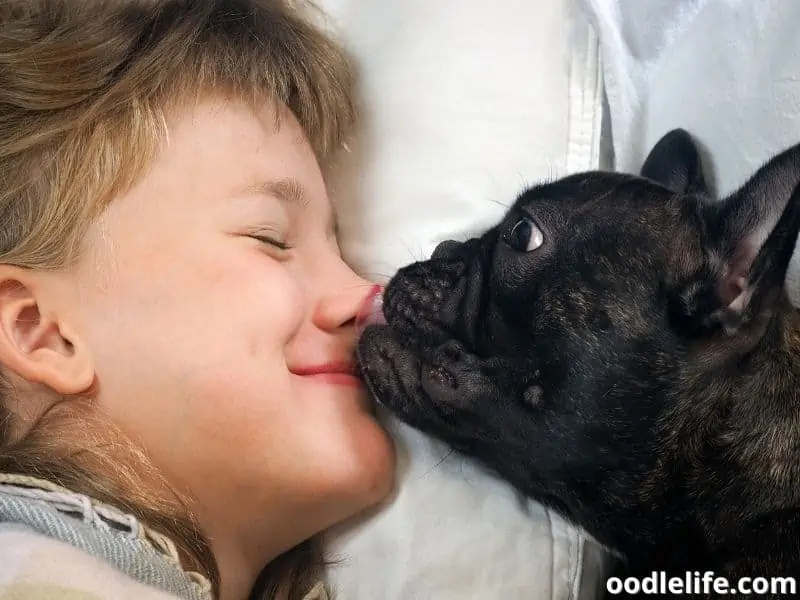
This type of nibbling behavior can be alleviated with proper training, behavior modification, or even medication, under the guidance of an expert.
Remember, a dog’s nibbling behavior is often harmless and playful, but as an owner, you need to determine if it’s a sign of aggression or anxiety. By understanding these key factors, you’ll be better equipped to address the issue and ensure the well-being of both you and your furry friend.
Addressing Nibbling Issues
When it comes to addressing nibbling issues in dogs, there are a variety of strategies and tips to consider. In this section, we will discuss three main approaches: providing chew toys and playtime, implementing training and discipline, and utilizing positive reinforcement.
Chew Toys and Playtime
Offering chew toys as an alternative can be an effective way to curb your dog’s nibbling habits. These toys may help satisfy their natural chewing instincts and redirect their attention away from your hands.
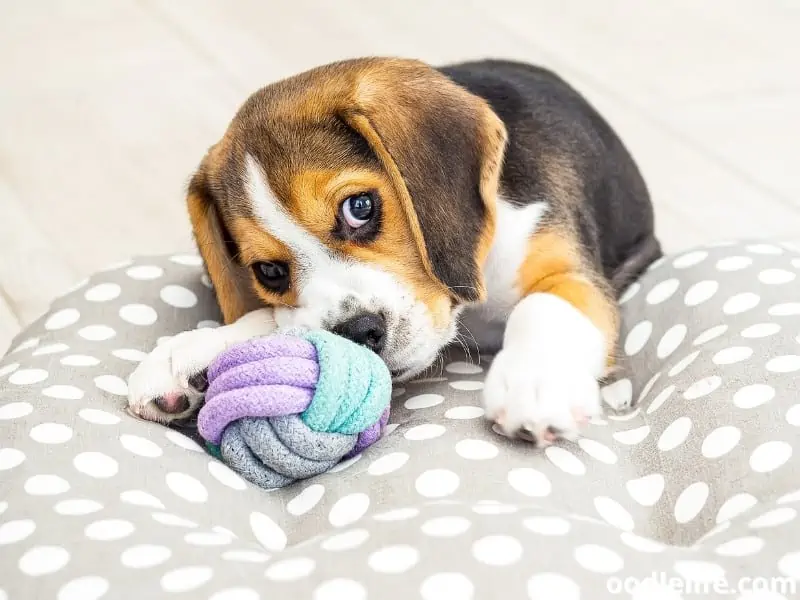
- Offer a variety of chew toys for stimulation and comfort.
- Play with your dog to keep them happy and ease potential hyperactivity.
- Engage in appropriate playtime activities to encourage healthy chewing habits.
For example, during playtime, use a tug-of-war toy to focus your dog’s energy on an object rather than nibbling on your hands or arms.
Training and Discipline
Teaching your dog not to nibble requires consistent training and discipline.
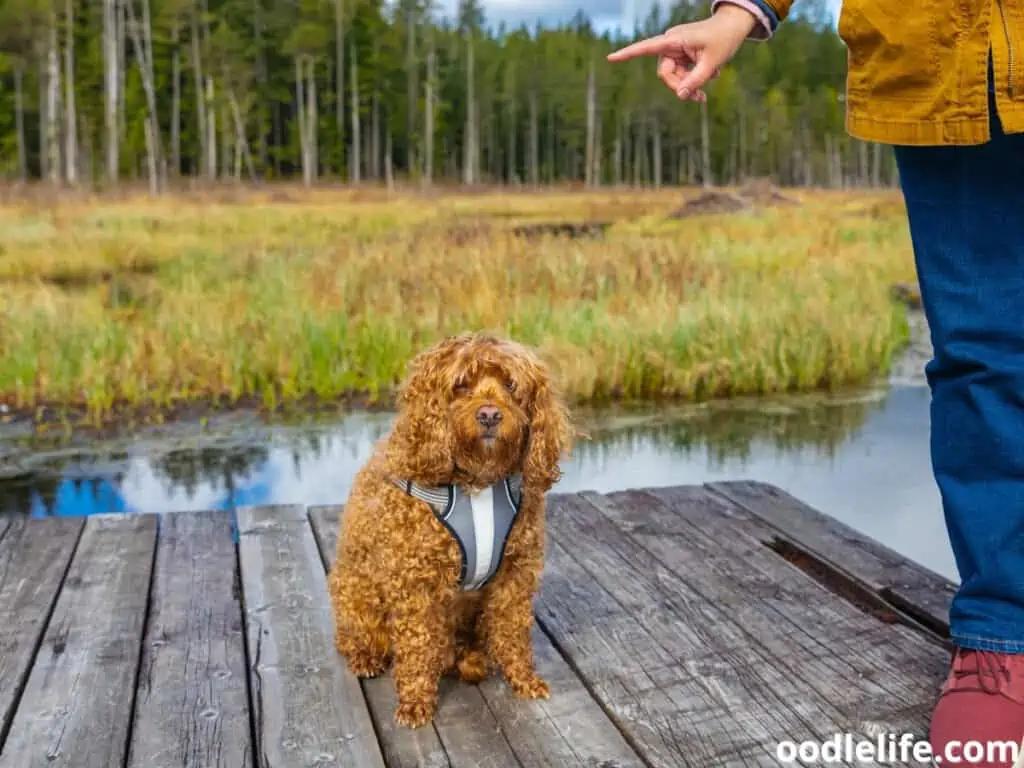
- When your dog nibbles, firmly say “no” or “stop.”
- If they continue, try giving a high-pitched yelp to startle them and convey discomfort.
- Redirect them to an appropriate chew toy as an alternative.
Remember that patience is key, and dog training is a gradual process. Use a clear, confident tone of voice to ensure they understand your commands and expectations.
Positive Reinforcement
Reinforcing good behavior is crucial in addressing playful nibbling.
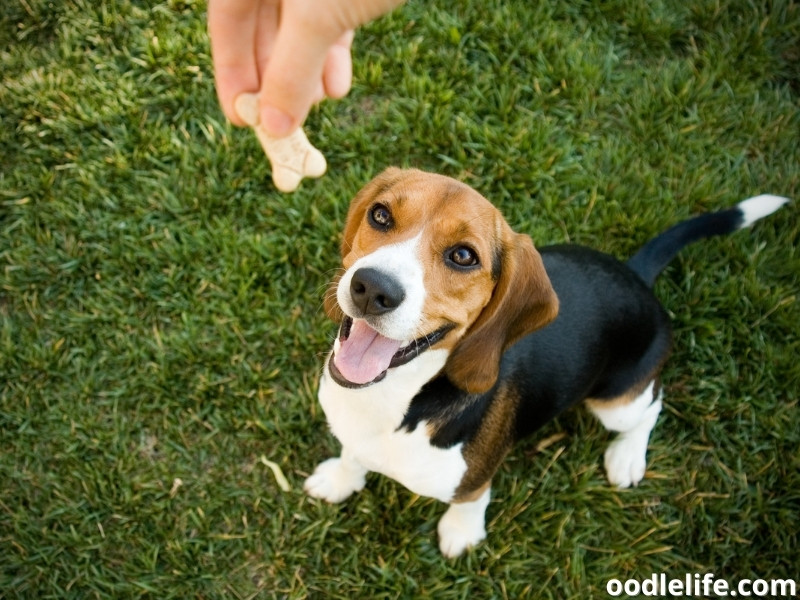
- Reward your dog with treats or praise when they choose an appropriate chew toy over nibbling on you.
- Reinforce desirable behavior with attention, petting, or playtime when they refrain from nibbling.
- Ignore unwanted behaviors such as nibbling, as giving attention to them might encourage the habit.
An example of positive reinforcement in action might be if your dog initially nibbles on your hand but then opts for a chew toy, make sure to praise them for their proper choice.
By combining these approaches, you should be well on your way to effectively addressing your dog’s nibbling issues. Take note of your dog’s specific needs and tailor your strategies accordingly, always keeping the process fun and engaging for you both—after all, Fido just wants to play!
Oral Health and Nibbling
Dogs sometimes nibble on their owners, and this behavior can sometimes be linked to oral health issues. In this section, we’ll explore some possible reasons related to oral health that may cause your dog to nibble on you.
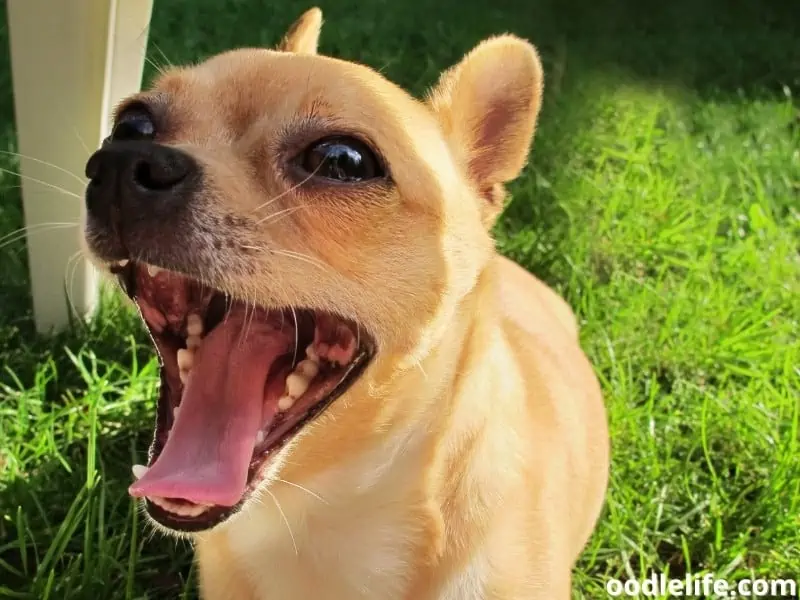
Oral Issues and Problems
One reason a dog might nibble on you is if they’re experiencing discomfort or pain caused by oral issues. Some common oral problems in dogs include:
- Broken or chipped teeth
- Inflamed or infected gums
- Loose teeth
- Tooth root abscesses
Just like humans trying to find relief from a nagging toothache by chewing on something, a dog might nibble on your hand or another object as an attempt to alleviate the pain.
Periodontal Disease and Gingivitis
Periodontal disease in dogs is caused by plaque and tartar build-up, which leads to inflammation and infection of the gums and bones surrounding teeth. This condition is called gingivitis when it’s limited to the gums. Dogs suffering from periodontal disease or gingivitis might nibble as a way to self-soothe or alleviate their discomfort.
Some signs that your dog might have periodontal disease or gingivitis include:
- Bad breath
- Red, swollen, or bleeding gums
- Difficulty chewing or eating
- Loose teeth
If you suspect your dog has gingivitis or other periodontal issues, it’s important to visit your veterinarian for a proper assessment and treatment.
Cavities and Other Issues
While cavities (technically known as caries) are less common in dogs than humans, they can still occur, especially if your dog has a diet high in carbohydrates or sugars. Cavities can cause pain and sensitivity in your dog’s teeth, which might lead to nibbling behavior.
Other oral health issues that could be linked to your dog’s nibbling include:
- Oral tumors or growths
- Foreign objects stuck between teeth or in the mouth
- Dental misalignment causing irritation when chewing
It’s always important to monitor your dog’s oral health and hygiene regularly. If you notice any symptoms or behaviors that could indicate a problem, such as nibbling, consult your veterinarian for proper evaluation and treatment. Regular dental cleanings and check-ups can help maintain your dog’s oral health and hopefully, reduce any nibbling behaviors associated with dental issues.
External Factors
Ticks and Fleas
One possible reason your dog might be nibbling on themselves or you is due to the presence of ticks or fleas. These pesky parasites can cause a lot of discomfort and itching for your furry friend. When a dog is bitten by a tick or flea, their body releases histamines, which trigger an intense itchiness that your dog might try to alleviate by nibbling.
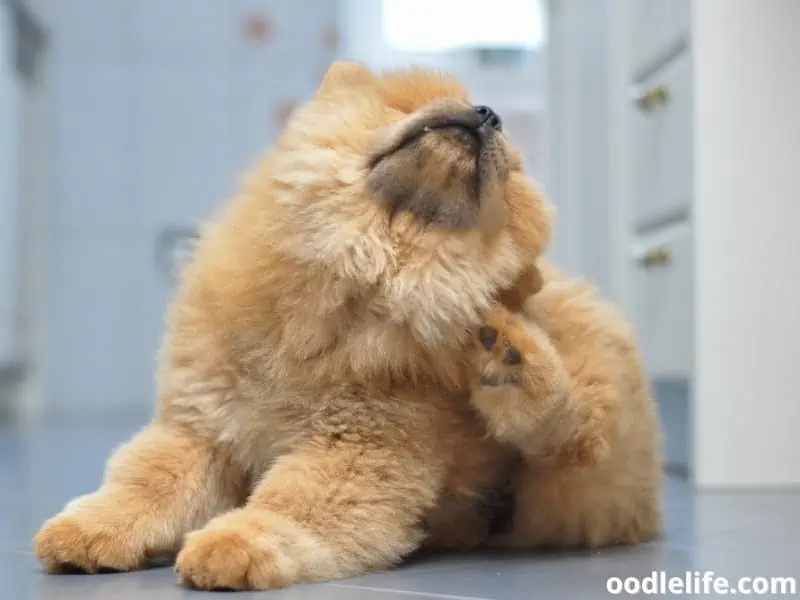
For example, imagine you had an itch that you couldn’t quite reach, and you had to use a fork to scratch it! That’s kind of what’s happening when your dog nibbles on themselves or you – they’re trying to find relief from the itching sensation caused by ticks or fleas.
Don’t forget that sometimes, a dog might even nibble you to “catch” a flea that’s jumped from their coat onto yours!
Grooming and Coat Care
Another factor that may cause your dog to nibble on you is related to grooming and coat care. Dogs naturally groom themselves and each other as a form of social bonding and to maintain personal hygiene. If your dog’s nibbling on you, it might be their way of trying to help groom you, much like they would with another dog.
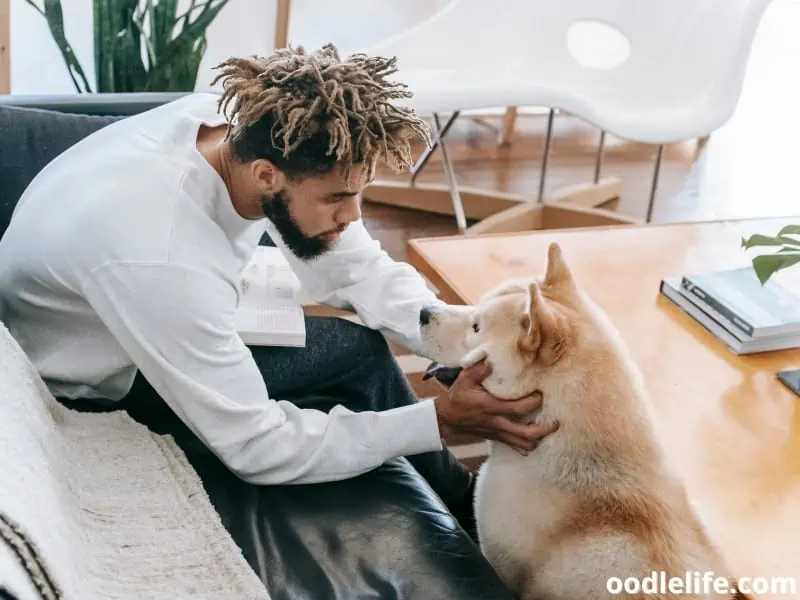
Consider a scenario where you’re sitting with your dog, and they notice a bit of food in your hair – kind of like having spinach stuck in your teeth. Your dog might instinctively nibble on you to help clean up the mess, because they care about your well-being and appearance too!
Additionally, long-haired dogs may need more extensive grooming to maintain a healthy coat. If their fur gets tangled or matted, they may nibble on themselves to try to remove the knots. A well-groomed dog may be less likely to resort to nibbling as a grooming behavior, so make sure you’re providing proper coat care for your furry friend.
Remember, while it’s essential to address the external factors that may be causing your dog to nibble, it’s always good to consult with a veterinarian for personalized advice about your dog’s behavior and health needs.
